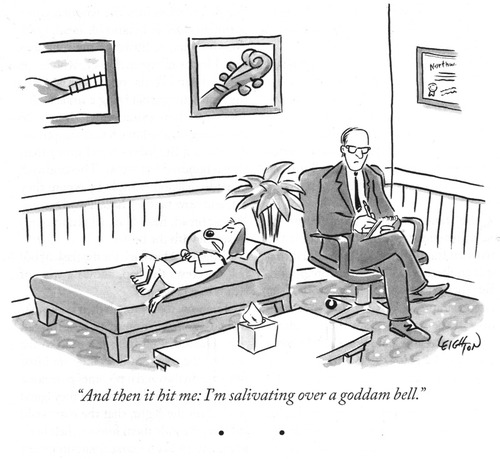What Is Depth Psychotherapy? (And How It Helps When Skills Aren’t Enough)

Most people first try short-term help: a few sessions of counselling, a worksheet, a podcast tip. Useful—until the same problem returns wearing a new costume. Depth psychotherapy is for that moment. It’s a gentle, structured way to work beneath the surface—where old patterns, attachment injuries, and unconscious dynamics quietly steer the day.
I offer depth psychotherapy in Tokyo (Ginza) and online worldwide, including jungian therapy tokyo, drawing on a Jungian-informed lens alongside modern, evidence-based care. Think of it as insight with traction: you’ll leave with both understanding and practical steps that change your week.
In Tokyo, jungian therapy tokyo offers a unique approach to mental health, combining traditional depth psychotherapy with the latest in psychological research.
Depth vs. Counselling vs. Psychoanalysis (Plain English)
Exploring Jungian Therapy in Tokyo
Understanding Jungian Therapy in Tokyo
Many clients find that jungian therapy tokyo helps them uncover deeper insights into their behaviors and choices.
- Counselling: short-term, focused support around a specific event (break-up, grief, decision).
- Psychotherapy: broader work when the issue shows up across life—anxiety, intimacy blocks, self-criticism.
- Depth psychotherapy: explores root patterns and the unconscious—the “why” behind the “what,” so change lasts.
- Psychoanalysis/Jungian analysis: depth work at higher frequency (often several times weekly).
My practice sits in depth psychotherapy with a once-weekly or biweekly cadence, integrating tools from EMDR and gentle exposure (PE principles) when trauma is spiking the system. For couples-specific work, see Couples Therapy in Tokyo.
For those seeking a profound understanding of their psyche, exploring jungian therapy tokyo can be transformative.
The Jungian Angle—Without the Jargon
This method is especially beneficial for individuals interested in jungian therapy tokyo as it provides an avenue for deeper self-exploration.
Jung observed that the psyche speaks in patterns and symbols: recurring dreams, repeating conflicts, sudden waves of feeling that feel “bigger than me.” Depth work helps you notice and re-pattern these forces:
- Shadow: parts of you that had to go quiet (anger, grief, tenderness, desire, power). We make safe space for them so they serve rather than sabotage.
- Complexes & archetypes: emotionally charged clusters and shared human blueprints that pull reactions. Naming them loosens their grip.
- Self & individuation: aligning with your deeper organizing principle—so direction comes from inside, not from fear or habit.
No mysticism required—just meaning that you can use in daily life.
What We Actually Do Together
1) Map & Set Aims (Sessions 1–2)
We clarify what hurts and what you hope for; map symptoms, triggers, relationship patterns, and stress cycles.
2) Stabilize the Nervous System
Simple, respectful practices (grounding, breath, body cues) so therapy and everyday life feel safe and doable.
3) Work in the Here-and-Now
We notice how patterns show up between us—not to judge, but to give you live practice in new moves (asserting, softening, receiving).
4) Symbolic/Imaginal Work (when helpful)
We may reflect on dreams, slips, recurring images—as clues, not commandments.
5) Targeted Processing (as indicated)
If traumatic memories hijack the present, we integrate EMDR or paced exposure to reduce reactivity, then return to depth work to consolidate change. Learn more under Trauma Therapy (EMDR + PE).
Clients engaging in jungian therapy tokyo often report significant improvements in their emotional well-being.
6) Integrate & Review
Clear, doable experiments between sessions (communication shifts, boundaries, rituals). We review progress every 4–6 sessions and refine the plan.
How Depth Psychotherapy Differs From Other Models
- Beyond “coping only”: Skills are essential—I teach them. Depth work also asks why this pattern formed and what it protects, so change becomes natural, not forced.
- Beyond crisis fixes: Counselling often resolves a situation. Depth therapy resolves the root so the next crisis lands differently.
- Beyond advice: This is not “just talk.” It’s precision practice inside a steady relationship where new experiences can safely replace old reflexes.
Who This Helps Most
- Repeating relationship patterns (pursue/withdraw, people-pleasing, fear of closeness)
- Complex trauma—successful outside, hyper-vigilant inside
- Identity transitions (relocation, parenthood, leadership shifts, separation/divorce)
- Anxiety/mood that don’t fully shift with skills alone
- Creative blocks or a sense of “I’ve done the tools—now I want deeper change”
What You Can Expect Over Time
As you progress, jungian therapy tokyo will help you establish a clearer sense of identity and purpose.
- Calmer baseline; fewer spikes and spirals
- Less avoidance; more freedom to choose
- Clearer boundaries and warmer connection
- Reduced shame; growing self-respect
- A steadier sense of meaning and direction
Working With Me
Working through issues with jungian therapy tokyo can lead to lasting change and personal growth.
I’m a Jungian-informed, relational depth psychotherapist with additional training in EMDR and Prolonged Exposure principles. Practically, that means we can calm the body and reshape the story—so insights show up in your week, not just your notebook.
- Where: Private Ginza office or secure Zoom (worldwide)
- Languages: English・Japanese
- Cadence: Weekly/biweekly (50 or 80 minutes)
- Next step: Book a free 15-minute consult or read more about Couples Therapy (Gottman Method)
FAQ
Understanding the nuances of jungian therapy tokyo can enhance your therapeutic journey.
Do we have to discuss dreams?
Only if you want to. We treat dreams as clues, not requirements.
Is this the same as Jungian analysis?
Many find that jungian therapy tokyo provides a robust framework for understanding complex emotions.
They overlap. Jungian analysis is typically multiple sessions per week. Depth psychotherapy brings Jungian ideas into a once-weekly/biweekly rhythm with integrated stabilization methods.
How soon will I feel a difference?
Many clients notice relief and clarity within 4–6 sessions; longstanding patterns take longer. We measure progress and adjust.
Ultimately, jungian therapy tokyo offers a path toward deeper healing and self-awareness.
